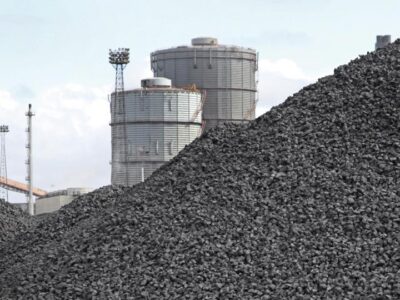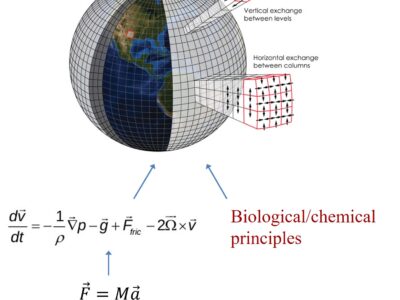scientific uncertainty
Does the Law Require Cost-Benefit Analysis?
According to the D.C. Circuit, the answer is no.
Putting aside the particulars of the case, it seems wrong to apply the same standard (monetized cost-benefit analysis) to every provision in environmental law. These provisions have different language, reflecting differences in congressional priorities. Some provisions, for instance, may be designed push industry to find innovative solutions; others may reflect Congress’s value judgments or a desire to limit EPA’s discretion. We shouldn’t assume that the myriad differences in statutory language are irrelevant and that Congress wanted agencies to adopt the same method of making decisions in every case.
CONTINUE READINGThe Emperor’s New Endangerment Theory (Part III)
How did EPA get to the absurd conclusion that 1.5 billion tons of carbon emissions aren’t significant? Well might you ask.
There is a very good chance that a court would strike down a EPA’s current finding that carbon emissions from the U.S. power sector are too insignificant to regulate. EPA’s effort to explain its ultimate conclusion rests on a hodgepodge of poorly analyzed considerations, which obviously have been reverse engineered to lead to EPA’s preferred conclusion.
CONTINUE READINGTrump Goes Nuclear
Four new executive orders try to launch a nuclear renaissance.
Diluting safety and environmental reviews is also likely to lead to a lot of litigation, which will slow nuclear licensing to a crawl. In addition, the industry knows that what one President can do by executive order, the next President can undo. So it could be risky to make investments in facilities that will be around for many decades, based on what could be an evanescent presidential policy. And the public will have good reason to fear that public safety won’t be a priority.
CONTINUE READINGThere are Piles of Coal in America’s Christmas Stocking
Coal is piling up, unused, at powerplants across the country
Bad children, supposedly, will get only lumps of coal in their stockings. That could be taken as a metaphor for the anti-environmental programs coming down the line, but I have in mind something a bit less metaphorical. According to a recent report, coal-fired power plants have immense piles of coal – 138 million tons, equal …
Continue reading “There are Piles of Coal in America’s Christmas Stocking”
CONTINUE READINGModel Uncertainty in Politics and Climate Policy
The polls could be systematically off, not just due to random error. That’s a worry with climate models as well.
Yes, your favored candidate could sweep the swing states, and yes, climate change could be more moderate than we now expect. But that shouldn’t give you much comfort on either issue, since the errors could equally be in the opposite directions.
Obviously, we’d like to improve our models, but that’s not always easy. In the meantime, the smart thing is to plan on the basis of the best models we have but avoid overconfidence about our predictions.
CONTINUE READINGArctic Futures: White Shield or Blue Economy
Multiplying proposals for ice restoration face geopolitical obstacles
Ice-thickening. Glacier curtains. Cloud brightening… Proposals for Arctic climate interventions seem to be multiplying by the day. The changing climate is not only shrinking ice caps and ice sheets, but also bringing much greater than average temperature rises in polar regions. These impacts particularly disrupt the lives and livelihoods of Arctic Indigenous Peoples. Arctic impacts …
Continue reading “Arctic Futures: White Shield or Blue Economy”
CONTINUE READINGReflections from a Member of the SCoPEx Advisory Committee
Sharing my lessons
After many years of work, the Stratospheric Controlled Perturbation Experiments (SCoPEx) Advisory Committee concluded our work earlier this year after the research team at Harvard made the decision to cancel the experiment. I was a member of the Advisory Committee for much of its time, serving as chair and co-chair of the committee for …
Continue reading “Reflections from a Member of the SCoPEx Advisory Committee”
CONTINUE READINGA Total Eclipse of the Heat
The eclipse mania gripping U.S. media and the entire nation is an opportunity to gaze in awe at the climate crisis we’ve unleashed and talk about our collective response.
Millions of Americans traveled this week to the path of totality to hunker down with loved ones and total strangers to gaze upwards at one of the most amazing astronomical events of our lives and share something like a transcendent, spiritual experience. I hope we can collectively reckon with another terrifyingly awesome atmospheric event: the …
Continue reading “A Total Eclipse of the Heat”
CONTINUE READINGChevron Gets the Headlines, But State Farm May Be More Important
The abortion pill case could undermine the authority of agency’s expert judgments.
The Chevron doctrine requires judges to defer to an agency’s interpretation of a statute if that interpretation is reasonable. The State Farm case, which is much less widely known, requires courts to defer to an agency’s expert judgment unless its reasoning has ignored contrary evidence or has a logical hole. As you probably already know, …
Continue reading “Chevron Gets the Headlines, But State Farm May Be More Important”
CONTINUE READINGThe global conversation about solar geoengineering just changed at the UN Environment Assembly. Here’s how.
Duncan McLaren and Olaf Corry reflect on the implications of the UNEA-6 non-decision on solar radiation modification for research and governance
As we wrote in part 1, a Swiss-led proposal to the UN Environment Assembly (UNEA) to establish an expert group on solar radiation management (SRM) proved divisive and was eventually withdrawn. Here we explore why, and what that means for any global conversation about SRM. SRM has long generated concerns that, as a powerful lever …
CONTINUE READING












